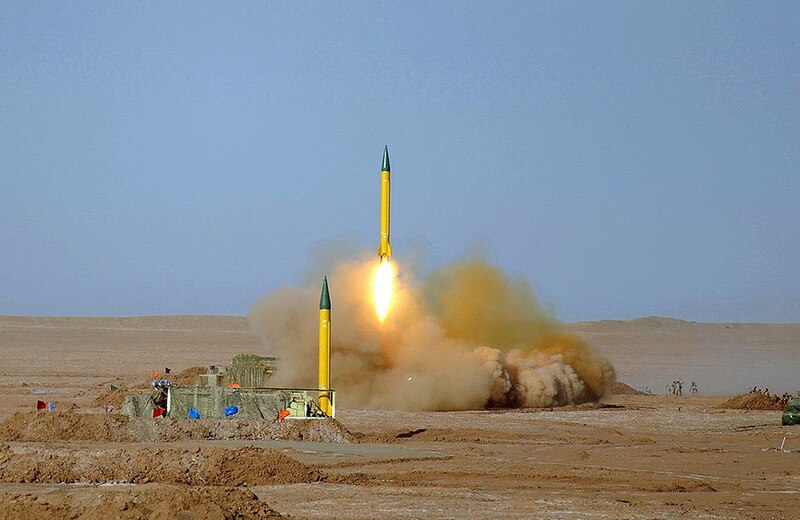
Explosions were reported over Tel Aviv and Jerusalem on Friday night as air raid sirens sounded across Israel, following what Israeli military officials described as missile launches from Iran.
The attack marks a significant escalation in tensions between the two countries.
According to Iran’s state news agency IRNA, hundreds of ballistic missiles were fired in response to what it called Israel’s most extensive strikes on Iranian targets to date—including an assault on the underground nuclear facility at Natanz and the killing of several top military commanders.
There were no immediate reports of casualties, though Iranian media later reported civilian deaths and injuries. Iran's retaliation came amid what Israel has called “Operation Rising Lion.” Iran’s Supreme Leader Ayatollah Ali Khamenei accused Israel of initiating the conflict.
U.S. President Donald Trump, in comments to Reuters, urged Iran to return to nuclear talks and said diplomacy was still possible. “They can still work out a deal,” Trump said, warning Iran against continuing its attacks.
As tensions rose, explosions were reported around Tehran, in Isfahan, and near the Fordow nuclear site close to Qom. Israel confirmed it had struck missile and drone launch sites, and a nuclear facility in Isfahan.
Israeli Prime Minister Benjamin Netanyahu said the strikes were necessary to eliminate what he called an existential threat from Iran. In a televised speech, he said the campaign would continue “as many days as it takes.”
According to regional sources, at least 20 senior Iranian military figures were killed, including Armed Forces Chief of Staff Major General Mohammad Bagheri and Revolutionary Guards Commander Hossein Salami. Iran also reported the deaths of six top nuclear scientists.
The newly appointed Guards commander, Major General Mohammad Pakpour, vowed severe retaliation, saying: “The gates of hell will open.”
Inside Iran, the strikes sparked widespread fear, with some residents seeking to flee the country. Public reactions were divided—some expressed hope for political change, while others rallied in defense of Iran’s nuclear ambitions.
Iranian media aired footage of damaged residential buildings, claiming nearly 80 civilians were killed and over 300 injured in strikes that targeted nuclear scientists in their homes.
Israel’s military said it also intercepted a missile launched from Yemen by the Iran-aligned Houthi militia, which landed in Hebron and injured three Palestinian children. Iran denied launching drones, despite Israeli claims that 100 drones were sent toward its territory.
The United Nations Security Council scheduled an emergency session at Iran's request. Iran accused Israel of committing "unlawful" and "cowardly" acts, vowing a proportional response.
Oil prices surged amid fears of broader regional instability, although there were no reports of disruptions to oil production. OPEC stated there was no immediate need to alter supply levels.
An Israeli security source revealed that Mossad operatives had conducted missions inside Iran prior to the strike and helped coordinate operations against Iran's missile infrastructure. Israel also reportedly established a drone base near Tehran.
The extent of damage to Iran's nuclear facilities remains unclear. While Iran maintains its nuclear program is peaceful, the U.N. nuclear watchdog recently found it in violation of non-proliferation commitments.
Tehran had been in discussions with the Trump administration to revive a nuclear agreement abandoned by the U.S. in 2018, though recent talks had stalled. Photo by Hossein Velayati, Wikimedia commons.


































